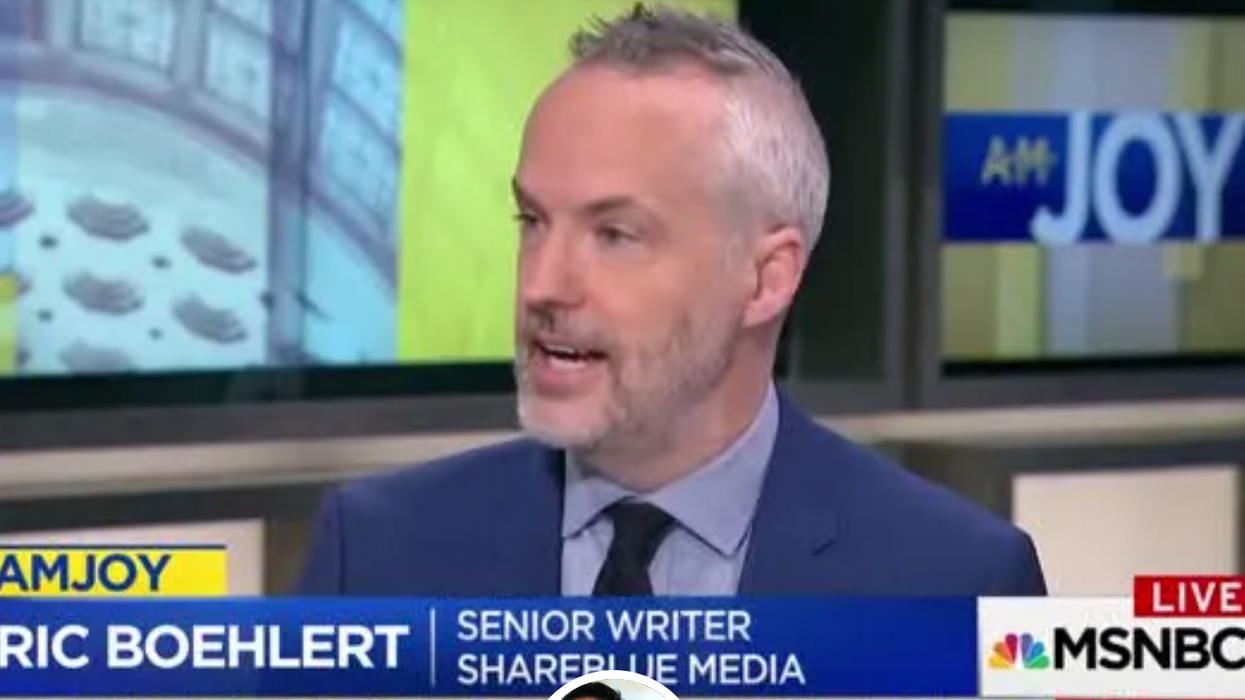Friends And Colleagues Mourn Admired Media Critic Eric Boehlert, 57
Eric Boehlert, the incisive and prodigious media analyst who became one of the most respected critics of right-wing disinformation and mainstream fecklessness, died on Monday evening in a tragic bicycle accident. He was struck by a commuter train while cycling in Montclair, New Jersey, where he lived with his wife Tracy Breslin and children Ben and Jane. He was 57 years old.
His dear friend, journalist and filmmaker Soledad O’Brien, announced his passing on Twitter, describing him as “a fierce and fearless defender of the truth,” and “an awesome human being, handsome/cool/witty dude who kicked ass on our behalf. Crazy devotion to facts, context, and good reporting, enemy of BS, fake news.” He was, she wrote, “Brutal to bad media on Twitter, sweetest guy in real life.” She was far from alone in that assessment.
To readers of The National Memo, Eric was a familiar and welcome byline whose writing appeared in these pages nearly from the beginning a decade ago. He was a former colleague of editor Joe Conason at Salon.com and a longtime friend.
“We were always thrilled to share Eric's articles,” said Conason, “first from Media Matters for America, later from Daily Kos – and over the past two years, he honored us by allowing frequent reprints from the PressRun site that he created in 2020.”
Kind and warm as well as astute, Eric was broadly admired despite the fact that he routinely published harsh judgments on the work of other outlets and reporters. He didn’t take himself too seriously but believed deeply that improving political media was crucial to the survival of a democratic society. He worked hard at that mission. And wherever he worked, he was loved for his humor, generosity, and friendship.
In the hours following his death, hundreds of tributes appeared on social media, where he had long been a powerful presence.
Media Matters, Salon, and Daily Kos issued moving statements recalling his contributions to their pages.
RIP to our friend @EricBoehlertpic.twitter.com/hdVYeithIG— Media Matters (@Media Matters) 1649271389
We are devastated by the loss of esteemed journalist and former @Salon senior writer, Eric Boehlert. \n\nOur condolences to Eric\u2019s family and friends during this difficult time. His passing is a huge loss to media criticism and progressive journalism.— Salon (@Salon) 1649270619
On the passing of Eric Boehlert, a true champion of truth and fairness in media, and an even better person.pic.twitter.com/W9W8IyX292— Daily Kos (@Daily Kos) 1649278460
James Fallows, both a pathbreaking journalist and a penetrating critic of press myopia, explained why he will be missed. “I had met Eric only once in ‘real life. But I corresponded with him with increasing frequency over the years, especially this past year, and considered him a conscience and inspiration,” wrote Fallows on his own Substack. “He was fearless and absolutely unsparing in his writing about this era’s mainstream press.”
Former Secretary of State Hillary Clinton tweeted her appreciation of Eric, who began to exercise his independence from herd journalism when her husband was president.
.@EricBoehlert\u2019s death is terrible news. I\u2019m devastated for his family and friends and will miss his critical work to counteract misinformation and media bias. What a loss.— Hillary Clinton (@Hillary Clinton) 1649271438
Articulate and telegenic, Eric made many appearances on all kinds of media -- he was a popular guest on major television broadcasts but often lent his talents to far smaller independent media outlets. Among those who featured him most frequently was MSNBC's Joy-Ann Reid.
This really is shocking and devastating news. Eric was a brave spirit who held the media accountable without fear or favor. He was an #AMJoy regular and a valued member of @thereidout fam. Deepest condolences to his wife and family. These losses are just adding up... ugh.. https://twitter.com/soledadobrien/status/1511762425753878531\u00a0\u2026pic.twitter.com/Q8EytkgEoL— Joy-Ann (Pro-Democracy) Reid \ud83d\ude37 (@Joy-Ann (Pro-Democracy) Reid \ud83d\ude37) 1649271101
This is devastating. My god. A real mensch.https://twitter.com/soledadobrien/status/1511762425753878531\u00a0\u2026— Chris Hayes (@Chris Hayes) 1649267875



